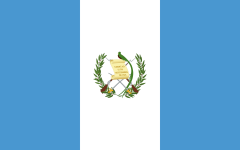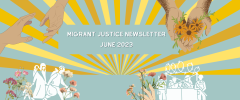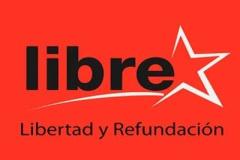Thank you to Nicaragua Solidarity Campaign Action Group-UK for this article.
Introduction
2021 is a crucial year for Nicaragua, with national elections due in November.
There are strong indications that President Daniel Ortega and the FSLN (Sandinista National Liberation Front) might again be re-elected with a substantial share of the vote. But what does the US have in store for Nicaragua? Will they try once again to sabotage the elections and subvert the will of the Nicaraguan people? And can Nicaragua once again resist and defend its sovereignty and its right to self-determination against US and other foreign interference?
US Double Standards
On 7 January, responding to the attacks on the US Capitol the previous day, President-elect Joe Biden said that these were ‘An unprecedented assault on our democracy, an assault literally on the citadel of liberty, in the United States
Capitol itself. An assault on the rule of law. An assault on the most sacred of American undertakings: ratifying the will of the people and choosing the leadership of their government.’
At the same time, Secretary of State Mike Pompeo tweeted that ‘violence, putting at risk the safety of others…. is intolerable both at home and abroad. Let us swiftly bring justice to the criminals who engaged in this rioting’.
Yet in an incredible, but typical, display of double standards, the US continues to show itself unwilling to respect the will of the Nicaraguan people and allow them to choose their own political authorities. Whilst Biden was happy to refer to the mobs who attacked the Capitol as ‘domestic terrorists’, the US administration gave its full backing to those who carried out similar actions and engaged in extreme violence in Nicaragua during the failed attempted coup in 2018, referring to them as ‘peaceful protesters’.
US aggression continues
In the case of Nicaragua, illegal coercive measures (aka sanctions) are part of the destabilisation project that began with the attempted coup. They show the will of the United States to subvert the country’s political and institutional order, and they feed the rhetoric of the political opposition that calls for such measures constantly. The project is to create a climate of adversity including violence, political chaos and economic boycotts as the menu for the latest season of subversion. The objective? To sabotage holding the elections mandated by the constitution for November 2021.
Donald Trump’s administration kept up a steady stream of sanctions announcements since the November election that handed Joe Biden a win. In December 2020, the U.S. Treasury Department blacklisted officials including the vice president of the Nicaraguan Supreme Court, Marvin Aguilar, ‘in an effort to target those continuing to assist the Ortega government’s efforts to undermine democracy’. In October, Dr Paul Oquist, President Ortega’s close adviser and spokesman on climate change, had been sanctioned.
This drive of sanctions against Nicaragua dates back to December 2018 when Trump signed into law the “Nica Act” (Nicaraguan Investment Conditionality Act), over two years after the draft legislation was first approved by the US House of Representatives in September 2016. The NICA Act was an attempt to use economic pressure to destabilise the country’s government and economy. Its main thrust was to try to cut Nicaragua off from loans and financial or technical assistance from the multilateral-lending institutions such as the World Bank, International Monetary Fund, Inter-American Development Bank (IDB) and Central America Bank for Economic Integration (CABEI).
Trump also announced (November 2020) an extension for a further year of an executive order with respect to Nicaragua, stating that the country posed ‘an unusual and extraordinary threat to the national security and foreign policy of the United States’. This technically means the US may have to take (military or other) action against such threat.
A US State Department Paper Responsive Assistance in Nicaragua (RAIN) was leaked last year detailing how the U.S. plans to involve itself in this year’s Nicaraguan elections. It spelled out how USAID was going to use the opposition, the gangs, and other measures to create an unproductive year for the Nicaraguan administration. The paper lays out how, if President Daniel Ortega does win again, there are plans to overthrow him and his administration through mob violence assisted by US-financed ‘NGOs’ and any other means possible.
With recent polls indicating majority popular support for Daniel Ortega and the FSLN and minimal support for a fragmented and divided opposition, Mike Pompeo met with the Nicaraguan opposition in Costa Rica several times to get them to unite behind one candidate, to put aside their divisions and to focus on the upcoming November elections. And the multi-million-dollar financial support for opposition groups continues.
In the face of continued US aggression, the Nicaraguan government has asserted its determination not to be a US client state in the region, but to be its own sovereign nation and not dance to the tune of the US. This is a reality which the US refuses to accept.
Will things change under Joe Biden?
Whilst the tone, style and substance of Joe Biden may differ markedly from his predecessor, it is unlikely that US policy towards Nicaragua is going to change any time soon. In terms of domestic policy, there are certainly likely to be positive changes related to climate change, labour relations and health, etc. However, following the failed coup in 2018, Biden lined up solidly behind Nicaragua’s right-wing opposition, calling on the international community to take action against President Ortega and falsely laying the blame for the violence at Ortega’s door. He stated at the time that there must be, on the part of the international community, ‘a constant and growing pressure from different fronts to try to change that situation and carry out free elections.’
Vice-President elect Kamala Harris also referred to Ortega as a ‘dictator’ at a September Florida campaign event and in September 2020, referring to Trump’s threatened deportation of asylum seekers, Biden tweeted that ‘Nicaraguan asylum seekers fleeing oppression deserve to have their cases heard. Instead, they’re being deported back into the tyrannical grip of Daniel Ortega without a chance to pursue their claims.’
It is also worth noting that the NICA Act and subsequent sanctions against Nicaragua have been unanimously supported to date by Democrats and Republicans alike.
Nicaragua’s 2021 elections
A wide–ranging poll carried out by independent polling firm M & R Consultores in December 2020 indicates that the FSLN maintains a big advantage over a fragmented and divided opposition that lacks support and credible leadership. Results from the survey, which looked at voting intentions in the run up to Nicaragua’s elections in November this year, indicated 53.2% support for the FSLN and 8.9% for the opposition
There are many reasons why the FSLN has a good chance to win in November.
Elections in 2006 saw the FSLN under President Ortega return to power after 16 years of neo-liberal government and, with his return, the beginning of a radical transformation in Nicaraguan society. The privatisation of health and education were immediately reversed, and the Government began to implement social and economic policies which focussed on human development and which were designed to benefit the most impoverished and vulnerable in society. Fifty-eight percent of the 2021 budget has been allocated for social spending, and health, education, housing and equality are regarded as human rights.
Nicaraguan government achievements since 2007
Free and accessible education – not only providing tuition for all but also books and supplies, housing, food and toiletries for university students too poor to provide their own and free school meals for some 1.2 million children (Nicaragua’s population is 6.5 million). More than 7,700 schools have been built or rebuilt and equipped since 2007.
Free health care. Health spending increased by 31.8% from 2006 to 2020. The government has built 18 state of the art hospitals since 2007 and seven more are under construction. Dozens of health clinics have also been built and the number of trained doctors and nurses and technicians has increased from 22,083 to 36,649. The government has established new testing facilities and equipment, more dialysis stations and machines, cancer treatment centres, and have decreased by 68% maternal and 61% infant mortality by establishing maternity wait homes (casas maternas) where pregnant rural women can come for care and be closer to hospitals. Cancer treatment, kidney transplants and dialysis are all free. New chemical labs have been established for making medicines in Nicaragua instead of importing all medications and the government has also established a lab for making vaccines and has a robust vaccination programme that is free. The Nicaraguan model of health care is based around the community with an emphasis on prevention and there is a regular programme of community health fairs and mobile clinics which bring health care directly to all neighbourhoods.
From 2021 to 2023 over 31,000 affordable homes will be built.
A social safety net is in place for vulnerable families providing them with food packages and other essentials.
Low-cost loans are given mainly to women to help them to build small businesses.
In 2020, financing was provided for 50,000 small household farms, providing jobs and food sovereignty and enabling products to be sold, thereby providing families with an income (Nicaragua is now 90% self-sufficient in food)
Expanded electricity access, now reaching 98.5% of the nation (almost 100% will be reached by 2025) up from 54% during the neo-liberal years – and leading in the fight against climate change with over 80% renewable (as opposed to less than 25% in 2006)
5th place in the World Economic Forum Gender Equality Index, the highest ranking non-Nordic country
Illiteracy (which was 36% in 2006) virtually eliminated
Potable water in 95% of homes (up from 65% in 2006)
The best roads in the region (600% more roads paved since 2007) and the creation or improvement of parks, all of which have free internet access
The reestablishment of women’s police stations specifically devoted to ending violence against women
The safest country in Central America
An increase in GDP of 35% over 11 years
In 2020, Nicaragua not only faced the COVID-19 pandemic, but also the effects of two category 4 hurricanes that hit Nicaragua in just two weeks in November. Measures taken by the government kept the coronavirus death rate one of the lowest in the world while the government responded quickly and efficiently to the hurricanes, bringing immediate assistance and relief to those affected.
A return to neo-liberalism?
In 1990, many Nicaraguans were effectively coerced by the US into reluctantly accepting that the Contra war and US embargo would continue if they voted for the FSLN to remain in power. In fact, the US administration declared that it would only send aid to Nicaragua if the US-backed UNO coalition were elected. At the same time, some neighbourhoods reported threats of murder if they voted for the FSLN in the elections. The consequence was that the UNO coalition under Violeta Chamorro won the election with 55% of the vote, with 41% for Daniel Ortega and the FSLN. What followed were 16 years of neoliberal government which brought Nicaragua to its knees.
Successive right-wing governments privatised health, education, electricity and telecommunications. Public spending in all spheres was reduced to a minimum. The public services were decimated and two thirds of public sector workers lost their jobs. The results were that in 2007, the FSLN inherited a country with the highest poverty and extreme poverty rates in the region, with illiteracy and social inequality and with little access to culture or sports. The country was effectively paralysed, with energy blackouts lasting more than 12 hours daily and the worst roads in the region. Parents were forced to choose between sending their kids to school and putting food on the table.
If the US gets its way, the dangers for Nicaragua are clear if one looks at the situation in Honduras. In 2009, a US-backed military coup ousted Honduras’ democratically elected left-wing President Manuel Zelaya and installed a right-wing regime. Violence in the country soared and by 2012 Honduras had the highest murder rate in the world. President Juan Orlando Hernández, a staunch right winger and US ally, has imposed neoliberal economic policies and brutal austerity measures that have significantly boosted poverty and caused inequality to skyrocket. Honduras has become one of the poorest countries in all of Latin America, if not the poorest with 67 percent of the population below the poverty line. Studies show as many as 50 percent of Hondurans are unemployed and a staggering 77 percent of Honduran children live in households that are in poverty; one in five children suffer from chronic malnutrition; and only 58 percent attend school. And poverty is only getting worse. With the military increasingly involved in internal security, and power consolidated under Hernández, the killing of activists has skyrocketed. In 2016, Berta Cáceres, a world-renowned environmental activist and one of the most vocal members of the anti-coup resistance movement, was assassinated. Officers from U.S.-trained Honduran military units have been implicated in her murder.
In Nicaragua, the US-backed opposition has never stooped to involve the poor in their decisions, but instead has run to the U.S. State Department and Congress to ask for their interference and to advocate for sanctions against their own country so as to accomplish their only objective: to seize power. Their intention and that of the US is to create a situation of chaos and dislocation such that it brings about a violent ‘regime change.’ If they and the US succeed in their ambitions, Nicaraguans will almost certainly see a return to the dark days of neo-liberalism and the country is likely to turn into another Honduras, subject to US diktat.
Conclusion
2021 should be a year of recovery for Nicaragua. The economy has been the least damaged in Central America by the pandemic, but to recover from the effects of the pandemic and two hurricanes, not to mention the 2018 attempted coup will require tremendous effort and continuing international support, especially if the Biden administration were to continue with sanctions and regime-change efforts.
Progressive forces around the world must redouble their solidarity efforts to ensure that Nicaragua survives and is allowed, without external interference, to preserve its sovereignty and its right to determine its own future so as to deepen and consolidate its progressive social agenda.
Sources and further reading:
http://www.tortillaconsal.com/tortilla/node/10998
https://jhc–cdca.blogspot.com/2021/01/banana–republic–i–think–not.html
https://thegrayzone.com/2019/10/24/honduras–us–backed–drug–traffickingdictatorship–opposition–united/ www.afgj.org




